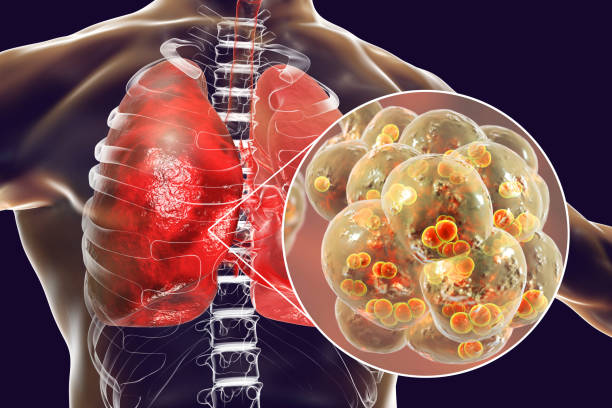
When some people think about maintaining good health they tend to forget about their lungs. This is unfortunate given that the fourth leading killer in the United States is chronic lower respiratory disease including chronic obstructive pulmonary disease (COPD) and asthma. Also, lung cancer is the second highest form of cancer affecting Americans. Black people, in particular, should pay attention to their lung health because studies show that they’re at a higher risk for these illnesses than other ethnicities.
RELATED: What Can You do to Manage COPD?
Top 5 Ways To Keep Your Lungs Healthy

1. Stay Away From Cigarettes
It might not surprise you that the toxins in cigarette smoke increase your risk of lung cancer. However, smoking also impacts your chances of developing other respiratory issues such as COPD, asthma, and idiopathic pulmonary fibrosis.
In fact, studies show that people who smoke are up to 13 times more likely to die from COPD than those who don’t. If you’re already dealing with any of these lung problems, smoking will only make the symptoms worse.
The best thing you can do is stay away from cigarettes and even second-hand smoke. Talk to your doctor about healthy ways to quit.
RELATED: Breathe Easier: 10 Everyday Ways To Open Your Lungs

2. Exercise Regularly
Your lungs need exercise just like the rest of your body. When you work out, your lungs have to work harder to get oxygen throughout the body while expelling carbon dioxide.
Over time, physical activity makes your lungs more efficient. It’s a good idea to aim for 20 minutes of moderate exercise at least 5 days of the week. While walking or cycling work well, don’t be afraid to try other activities that may work better for you.

3. Practice Deep Breathing
Apart from making your lungs efficient, you can also increase their capacity. Studies show that the average person only uses a small portion of their lungs.
RELATED: 5 Ways to Keep Your Lungs Healthy
By practicing deep breathing, you can hold more oxygen and expel carbon dioxide well. The increased capacity also helps your stamina during physical activity.
There are different types of deep breathing exercises but in its simplest form, you inhale slowly while expanding your belly. Next, you would expand your ribs, then allow the chest to lift. When you exhale, bring the stomach muscles in to completely empty your lungs.

4. Avoid Irritants And Pollutants
Environmental irritants and pollutants can damage your lungs. In fact, many instances of adult-onset asthma can be tracked back to irritants.
To avoid them, you should use protective gear at work and keep your indoor air quality high. You should also stay away from second-hand smoke, don’t exercise in areas that have a lot of air pollution, and don’t use a lot of synthetic cleaners or air fresheners in your home.

5. Prevent Respiratory Infections
Respiratory infections can take a greater toll as you get older. They can also be harder to manage if your lungs have already been compromised by a previous or chronic illness.
RELATED: The Ultimate Guide to Helping Your Teen Cope With Asthma
It’s important to wash your hands regularly, stay away from people who are ill, eat healthily, and maintain good oral hygiene. Additionally, talk to your doctor about a vaccination schedule that’s right for you. A typical routine includes pneumonia and influenza.
When To See Your Doctor
Another important aspect of taking care of your lungs is knowing when something is wrong. Suppose you’re experiencing wheezing, shortness of breath after simple activities, pain when you breathe, dizziness when you change activities, or a persistent cough. In that case, you should see your doctor as soon as possible. These are possible symptoms of asthma, lung cancer, or COPD. You should also ask your doctor how often you need to have your lungs checked if you’re a smoker or have a family history of respiratory issues.
RELATED: Find A Pulmonologist Here
The lungs are just as important as your other organs. Keep them healthy and see your doctor if you have any concerns. Many illnesses can be effectively treated or managed once they’re detected early.









